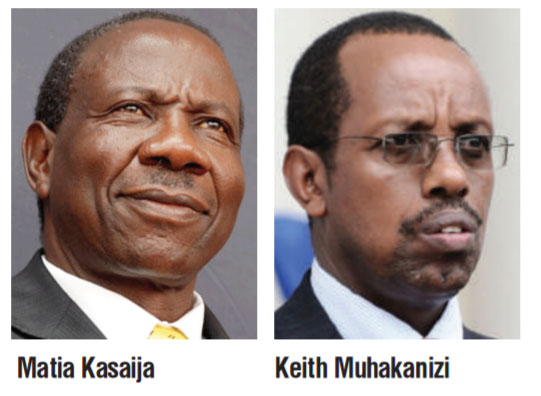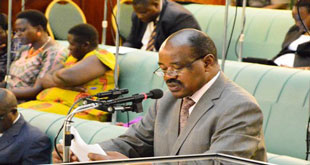
MPs task government to explain “loss” of tax payers’ money through incentives to specific companies as sh524 billion supplementary budget is tabled
Uganda Parliament’s Budget Committee has tasked the Ministry of Finance to explain to them as soon as possible why government chose to help pay huge taxes for profit making companies.
The committee, while reviewing supplementary budget Schedule-One 2016/2017, realized that government had used sh77 billion to pay corporate taxes for companies like Cipla Quality chemicals, Aya Investments, Bidco, Southern Range Nyanza textiles,Uganda Electricity Generation company and Steel and Tube Industries Ltd.
The supplementary budget tabled in line with Section 25 of the Public Finance Management Act (2015) for the financial year 2016-2017 is worth sh523.9 billion, and it gives a lion’s share to the Uganda National Roads Authority, the Ministry of Defence as well as the Ministry of Works. They are to take sh155 billion, sh60 billion and sh31 billion respectively.
The act demands that the Ministry of Finance tables any additional resources over and above those approved before they can be used.
In cases where the funds have been used, the law demands that the supplementary estimates showing such funds used must be presented to parliament, within at least four months.
In the Office of the Prime Minister, sh15 billion was used to purchase emergency food for people in hunger stricken areas. Ministry of Defence justified its sh60 billion expenditure above its original approved sh810 billion as classified expenditure and operational shortfalls.
Meanwhile, according to the supplementary estimates, sh2.9 billion was spent by State House as classified expenditure and another sh20m was spent on drinks and special meals in the President’s Office. Sh49m was spent on welfare and entertainment while sh22m was spent on books and periodicals.

Chairman Budget Committee Amos Lugoloobi took a swipe at government ministries and departments particularly State House and the Ministry of defence for failure to work within the appropriated budgets, hence requesting for supplementary budgets.
“It is unfortunate that the Ministry of Defence and State House are the principle culprits. In almost all the supplementary schedules, we see them appearing,” Lugoloobi said.
“What we have noted in the past is that whereas there are agreed upon regulations, government finds it difficult to comply. They have absolutely failed to pass the test claiming that expenditures are unavoidable and unforeseen,” said Lugoloobi.
Here is a summary break-down of the sh523.9 billion supplementary budget and the top beneficiaries.
| ENTITY | AMOUNT (Ugx) |
| President’s Office | 1.7 bn |
| State House | 2.9 bn |
| OPM | 15 bn |
| UNRA | 155 bn |
| Defence | 60 bn |
| Works | 31 bn |
| Agriculture | 17.8 bn |
| Finance | 11 bn |
| KCCA | 6 bn |
| National Medical Stores | 27 bn |
| Universities | 5.6 bn |
| Districts | 78.9 bn |
| Others | 112 bn |
 The Independent Uganda: You get the Truth we Pay the Price
The Independent Uganda: You get the Truth we Pay the Price



